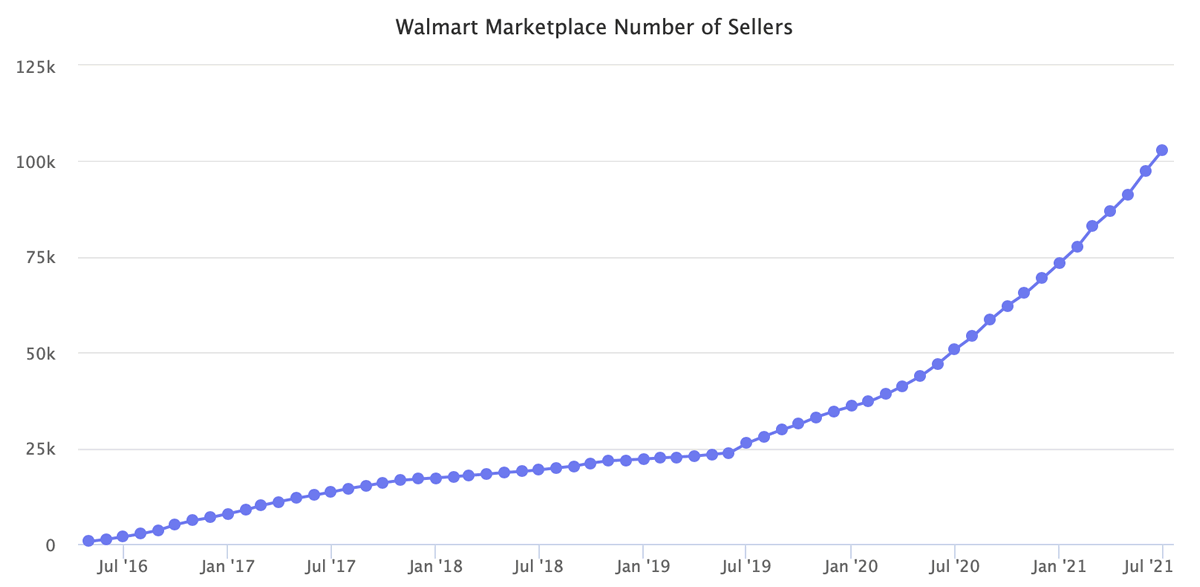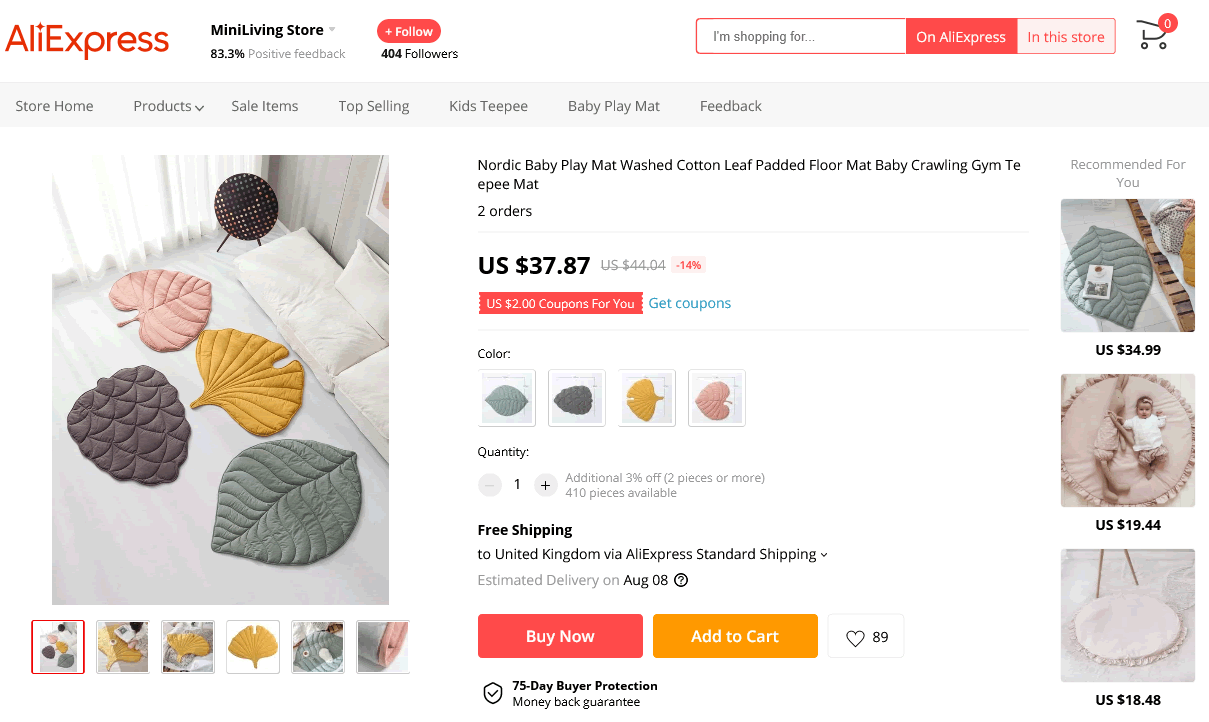The Web Retailer News Digest for July 16th, 2021
Some online retailers have seen a 33% increase in “item not received” abuse in the last year, according to fraud-prevention company Forter.
This abuse happens when someone buys a product online, then claims they never received the item when they actually did. Some consumers will do this independently, while others will hire someone to do it for them. Professional refund scammers advertise their services on social media sites, offering to claim refunds from retailers such as Amazon, Walmart and Target for a percentage fee.
There are also instruction manuals being sold that explain step by step how to take advantage of refund policies. Many retailers will immediately issue a refund when a customer says they did not receive their order, while others have procedures in place which must be navigated through.
This type of abuse is not new, but changes to delivery practices during the pandemic have provided more scope to make false claims. Signatures are often not required, and doorstep delivery without waiting for the door to be opened is common. Is there any way for sellers to fight back?
Item not received abuse rises 33%
The industry is certainly aware of this problem. Parcel carriers including UPS and Amazon have replaced signatures with other evidence of delivery, such as GPS data and photos of delivered packages. Some online retailers have strengthened their claims process by asking for signed declarations of non-delivery.
But the real weak point here is the desire of online retailers, led by Amazon, to bend over backwards to please their customers. Lenient refund policies are appreciated by genuine customers, of course, but they are the absolute lifeblood for return scammers. A balance has to be found between dealing with real delivery problems efficiently, and putting barriers in place to bring this return fraud under control.
Retailers might feel that it is better to refund a dishonest customer rather than fail to satisfy a genuine one. But the scammers know that, and they are actively exploiting it. By adopting a laissez-faire approach, online retailers are allowing criminal enterprises to thrive and opening the whole industry up to increasing levels of abuse.
Read more at The Wall Street Journal.
Amazon news
US safety regulator sues Amazon over hazardous products
The US Consumer Product Safety Commission (CPSC) is suing Amazon to force it to recall products that present a substantial risk of injury to the public.
The faulty products include:
- Over 24,000 carbon monoxide detectors that failed to detect carbon monoxide.
- Nearly 400,000 hair dryers that failed to protect against electrocution.
- Children’s sleepwear that failed to meet flammability testing standards.
In each case, products from multiple manufacturers were affected. In the case of the hair dryers, 36 products from 33 different brands are listed. All of the manufacturers appear to be Chinese companies, with typical nonsense names such as ADTZYLD, LetsFunny and TDYJWELL.
Although Amazon notified buyers of the affected products after being contacted by the CPSC, the complaint says that Amazon’s actions were insufficient.
Read more at Engadget.
Free returns required for UK self-fulfilling fashion sellers
Sellers on Amazon.co.uk who self-fulfill orders of apparel, shoes, handbags, jewelry and watches will be required to provide free return shipping from August 9th. Amazon buyers will see a “free returns” message on the product detail page for these items.
The change brings seller-fulfilled products into line with Amazon’s returns policy for fashion items that it fulfills itself.
Fashion items have the highest return rates of any product category, and are particularly prone to abuse such as wardrobing – where the customer wears the item and then returns it, often in a condition that prevents it from being resold.
Read more at Amazon Seller Forums.
Other marketplaces
Walmart marketplace sellers double in one year
The number of third-party sellers on the Walmart marketplace has now reached 100,000, an increase of 100% compared to July 2020, according to Marketplace Pulse.

The Walmart marketplace is adding close to 5,000 sellers per month, but only around 35% of registered sellers are active with products listed for sale on the site. Following Walmart opening up the marketplace to non-US sellers in March this year, registration of sellers based in China has reached 15% and continues to increase.
Walmart marketplace sales growth is above 100%, outpacing Walmart’s overall ecommerce sales increase.
The successful expansion of the Walmart marketplace is plain to see. The world’s largest retailer continues to gain ground on Amazon, largely by copying its strategy. It remains to be seen if this will result in Amazon’s shortcomings being copied as well, with product categories dominated by copycat Chinese factories and systemic problems of review manipulation and other nefarious activities.
Read more at Marketplace Pulse.
Alibaba fast global shipping might cut out Amazon
Alibaba is aiming to deliver orders anywhere in the world within 72 hours, reports The Wall Street Journal.
Alibaba is investing in robotics for its Cainiao fulfillment division to speed up dispatch operations, and its shipping network is gaining traction in Europe. Alibaba processed $75 billion worth of orders during the Single’s Day sales event last year which, despite the name, takes place over 11 days. Single’s Day sales exceed those of Black Friday, Cyber Monday and Prime Day combined.
Cainiao is also chartering over 80 flights each week to export products, and operating transfer centers in countries including Russia, France and Spain to help expedite last-mile deliveries.
Alibaba delivers to 190 countries directly from China and makes more use of third-party logistics services. The result to date has been cheap but relatively slow shipping. A new AliExpress membership program aims to help bring that down to only 3 days.
Watch the video on YouTube.
Also in the news
- UK union submits complaint to competition regulator alleging Amazon profiteering during the pandemic. Read more at Unite.
- Applications open to participate in Amazon Pay annual gift catalog. Read more at Amazon Seller Forums US and UK.
- Four new certifications available under Amazon’s Climate Pledge Friendly program. Read more at About Amazon.
- BigCommerce adds integration with Amazon fulfillment services. Read more at BigCommerce.
- eBay announces new API capabilities. Read more at eBay.
- Etsy makes shipping tracking numbers mandatory in the US… but with an opt-out. Read more at Etsy.
- Etsy completes deal to buy fashion resale app Depop and Brazilian crafts marketplace Elo7. Read more at BusinessLive and DC 360.
Webinars in the week ahead
For everyone
July 20: Amazon Sponsored Display ads fireside chat (Sellics).
Various dates: Amazon advertising’s global webinar program rolls on with 20+ webinars scheduled, covering Sponsored Products, Sponsored Brands, reporting, optimization and tips (Amazon).
For US sellers
Various dates: Amazon small business Pathways series (Amazon).
July 20: Global ecommerce shipping and taxation (DC 360).
July 22: Making the most of Q4 on Amazon (eComEngine).
For UK sellers
July 20: How to master Fulfillment by Amazon like an expert (Amazon).
July 22: E-Commerce strategies for peak season success (ChannelAdvisor).
And finally…
Etsy Design Awards includes apparently mass-produced item
The co-founder of trade association the Craft Industry Alliance, Abby Glassenberg, posted on Twitter this week to point out that a product selected as a finalist for the Etsy Design Awards is available to buy on AliExpress. While Etsy is a venue where all items sold must be handmade or vintage, AliExpress is a marketplace for buying directly from Chinese factories.
The item identified, an OMOLOKO leaf play mat, is sold by one of “100 inspiring sellers [who] are a perfect representation of the talent within our community”, according to Etsy. But dozens of identical items can be found easily on both Etsy and AliExpress.

Perhaps the seller nominated for Etsy’s award is the original creator of this product, and all the others are copies. But it still feels very strange to feature a product so prominently that is widely copied on Etsy’s own site. Are we really supposed to believe that all of these sellers, with their near-identical photography, are hand-making these products to order rather than simply buying from AliExpress and reselling?
A Business Insider investigation in May this year found many products for sale on Etsy that are prohibited under the site’s own rules, including mass-produced merchandise in violation of the site’s policy that products must be handmade.
Read more at Twitter @abbyglassenberg.
Leave a Reply